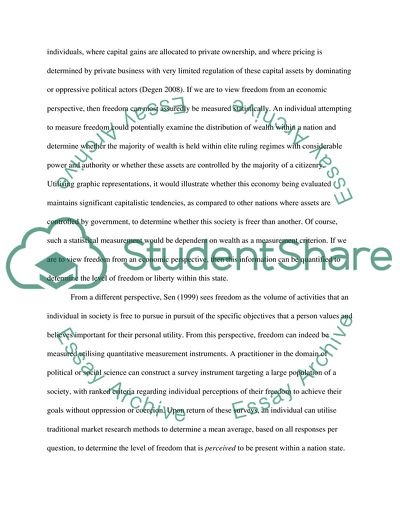Cite this document
(A Measure of Freedom Essay Example | Topics and Well Written Essays - 1750 words, n.d.)
A Measure of Freedom Essay Example | Topics and Well Written Essays - 1750 words. Retrieved from https://studentshare.org/sociology/1693441-can-freedom-be-measured
A Measure of Freedom Essay Example | Topics and Well Written Essays - 1750 words. Retrieved from https://studentshare.org/sociology/1693441-can-freedom-be-measured
(A Measure of Freedom Essay Example | Topics and Well Written Essays - 1750 Words)
A Measure of Freedom Essay Example | Topics and Well Written Essays - 1750 Words. https://studentshare.org/sociology/1693441-can-freedom-be-measured.
A Measure of Freedom Essay Example | Topics and Well Written Essays - 1750 Words. https://studentshare.org/sociology/1693441-can-freedom-be-measured.
“A Measure of Freedom Essay Example | Topics and Well Written Essays - 1750 Words”. https://studentshare.org/sociology/1693441-can-freedom-be-measured.


